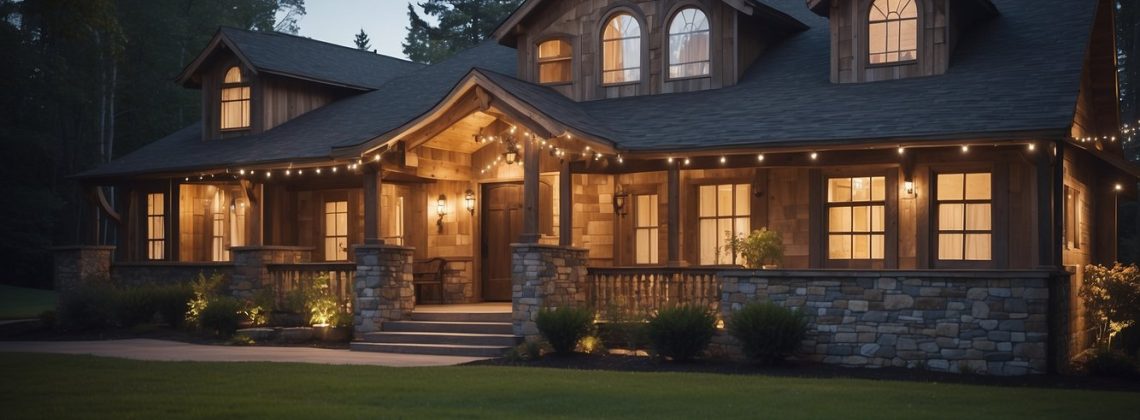
Essential Tips and Strategies
In the aftermath of a disaster, your home security becomes more important than ever. With the breakdown of law and order, looters and other criminals may see your home as an easy target. As a prepper, you know that securing your home is a critical part of your disaster preparedness plan. In this article, we will explore the fundamentals of home security post-disaster and provide you with practical strategies to keep your home and family safe.
Communication is key in any disaster situation, and this is especially true when it comes to home security. Without reliable communication, you may not be able to call for help or coordinate with others in your prepper network. We will discuss communication strategies that will help you stay connected with the outside world, even when the power is out and traditional communication channels are down. We will also cover power and electricity management, which is essential for keeping your home security systems up and running during a disaster.
Key Takeaways
- Home security is critical in a post-disaster scenario.
- Communication and power management are essential for maintaining home security.
- A prepper network can provide additional support and protection.
Fundamentals of Home Security Post-Disaster
When it comes to securing your home post-disaster, there are several fundamentals that you should keep in mind to ensure that your shelter is safe and secure. These fundamentals include assessing risks and vulnerabilities, establishing a secure perimeter, and reinforcing entry points.
Assessing Risks and Vulnerabilities
The first step in securing your home post-disaster is to assess any risks and vulnerabilities that may exist. This includes identifying potential entry points, such as doors and windows, and determining if they are secure and durable enough to withstand any attempts at forced entry.
You should also consider the surrounding area and any potential threats that may exist, such as looters or wild animals. By identifying these risks and vulnerabilities, you can take steps to mitigate them and ensure that your home is as secure as possible.
Establishing a Secure Perimeter
Once you have assessed your risks and vulnerabilities, the next step is to establish a secure perimeter around your home. This can be done by creating physical barriers and deterrents, such as fences, walls, and other obstacles that make it difficult for intruders to gain access to your property.
In addition to physical barriers, you should also consider enhancing your outdoor lighting and implementing surveillance systems to monitor any activity around your home. By establishing a secure perimeter, you can create a safe and independent environment that is comfortable for you and your loved ones.
Reinforcing Entry Points
Finally, it is important to reinforce all entry points to your home, including doors and windows. This can be done by installing durable locks and reinforcing frames to make them more resistant to forced entry.
You should also consider installing an alarm system that will alert you in the event of any unauthorized entry attempts. By reinforcing your entry points, you can ensure that your home is as secure as possible and that you and your loved ones are safe and comfortable.
In conclusion, by following these fundamentals of home security post-disaster, you can create a safe and secure environment that is durable, independent, and comfortable.
Communication Strategies
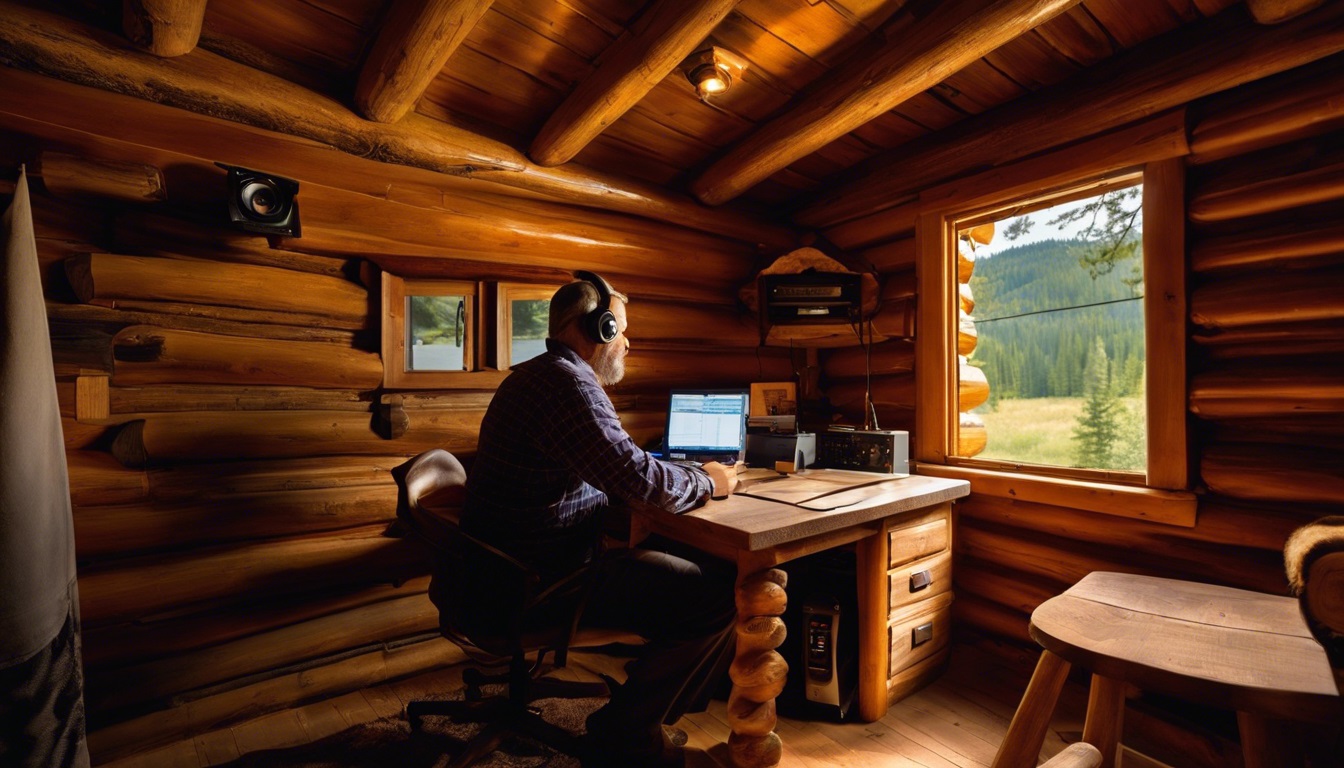
When disaster strikes, communication is key to ensuring your safety and that of your loved ones. In a post-disaster scenario, traditional communication channels such as phone lines and internet may be down, making it crucial to have alternative communication methods in place.
Choosing the Right Communication Tools
One of the most reliable communication tools for preppers is amateur radio, also known as ham radio. Ham radio operators can communicate with each other over long distances, even when traditional communication channels are down. It requires a license to operate, but it is a valuable tool for preppers to have in their arsenal.
Other options for emergency communication include FRS, GMRS, and CB radios, which are available for purchase without a license. These radios operate on specific radio frequencies and can be used to communicate with others within range. Morse code is also a useful skill to have for emergency communication.
Setting Up Emergency Communication Protocols
It is important to have a plan in place for emergency communication. Designate a primary and secondary point of contact for you and your loved ones to check in with during and after a disaster. Agree on a communication protocol and frequency, and make sure everyone knows how to operate the chosen communication tools.
Maintaining Contact with the Outside World
In addition to having communication tools in place, it is important to stay informed about the outside world during a disaster. Weather radios and other emergency alert systems can provide valuable information about the situation and any potential dangers. Virtual community networks can also be useful for staying up to date on local news and events.
In summary, having a plan and the right communication tools in place is essential for staying safe and informed in a post-disaster scenario. By choosing the right communication tools, setting up emergency communication protocols, and maintaining contact with the outside world, you can increase your chances of survival and ensure the safety of yourself and your loved ones.
Power and Electricity Management
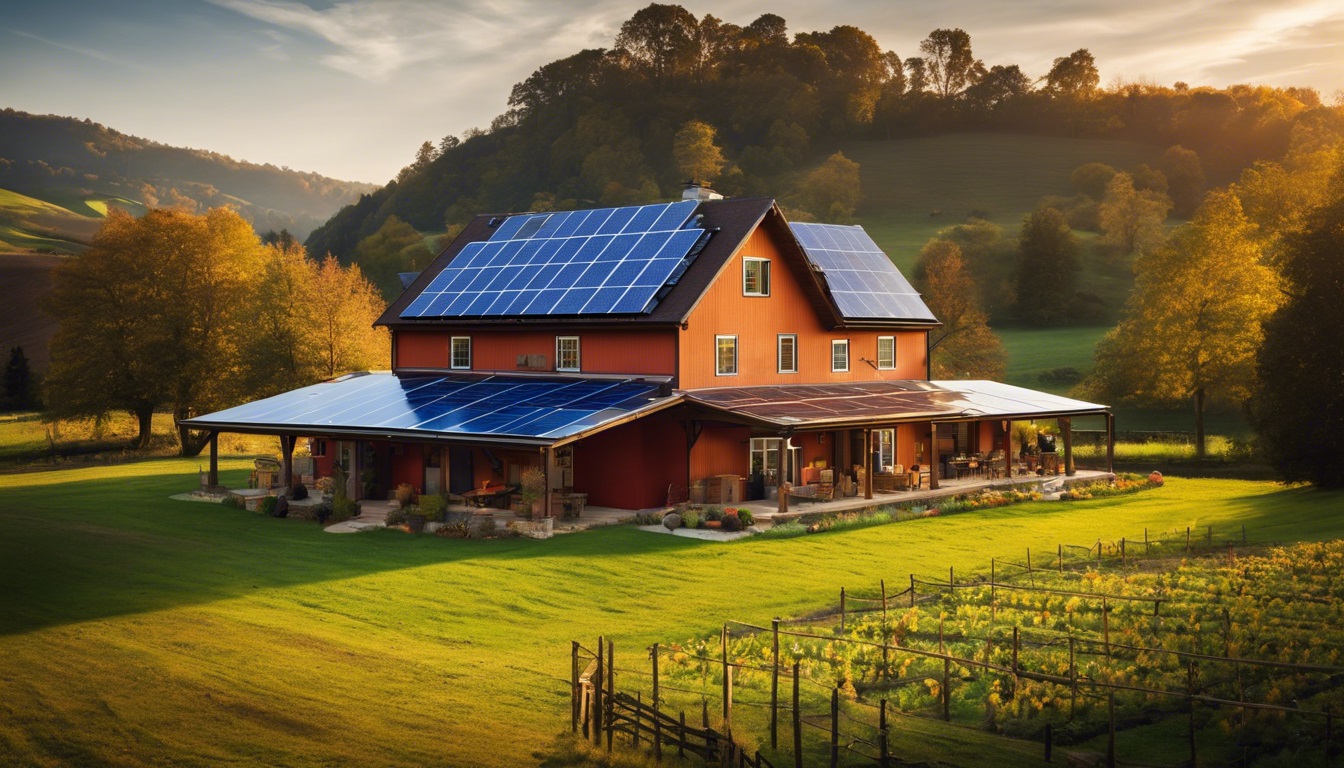
Off-Grid Power Solutions
In a post-disaster scenario, power outages are very common and can last for an extended period. Therefore, it is essential to have an off-grid power solution in place to keep the lights on and the necessary appliances running. The most common off-grid power solutions include solar panels, rechargeable batteries, and car batteries.
Solar panels are an excellent off-grid power solution as they can generate electricity from sunlight. They are easy to install and can last for a long time. Rechargeable batteries are also an excellent option as they can be charged using solar panels or other power sources. Car batteries are another option as they can be used to power small appliances and devices.
Managing Energy Consumption
Managing energy consumption is crucial in a post-disaster scenario. You need to conserve energy to ensure that your power supply lasts as long as possible. One way to manage energy consumption is to turn off appliances and devices when not in use. You can also use energy-efficient appliances and devices to reduce energy consumption.
Backup Power Systems
Backup power systems are essential in a post-disaster scenario. They can provide power when your primary power source is unavailable. The most common backup power systems include inverters and charge controllers.
Inverters are devices that convert DC power from batteries into AC power that can be used to power appliances and devices. Charge controllers are devices that regulate the amount of power that goes into batteries to prevent overcharging and damage.
In conclusion, power and electricity management is crucial in a post-disaster scenario. Having an off-grid power solution, managing energy consumption, and having backup power systems in place can help ensure that you have access to power when you need it most.
Survival Supplies and Food Storage
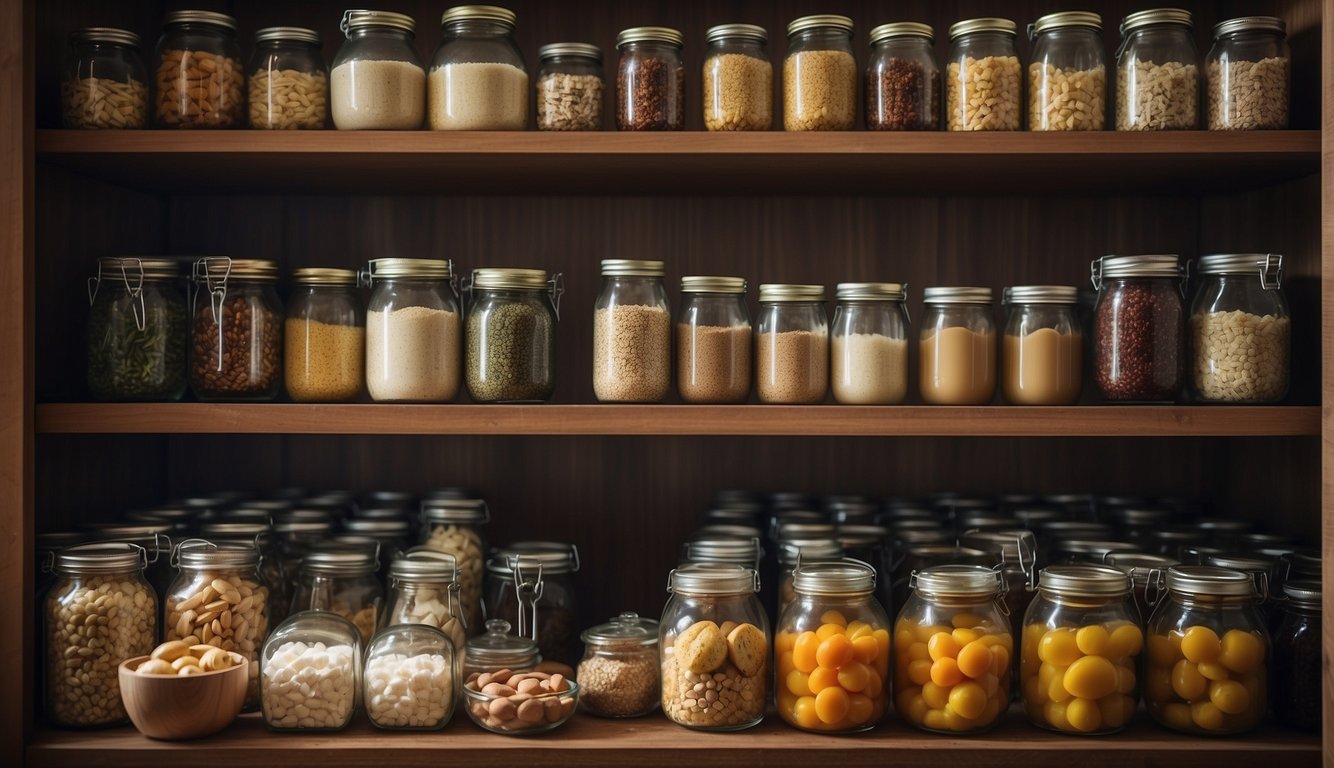
When it comes to surviving a disaster, having enough food and water is crucial. Preppers know that it’s important to have a stockpile of long-lasting food and water supplies that can last for months or even years. In this section, we’ll discuss some of the key considerations for food storage and water purification.
Long-Term Food Preservation
One of the most important aspects of prepping is having a supply of food that can last for a long time. This means choosing foods that have a long shelf life and can be stored without refrigeration. Some good options include canned goods, freeze-dried foods, and dehydrated fruits and vegetables. It’s also important to rotate your food supply regularly to ensure that it doesn’t expire or go bad.
Water Purification and Storage
Water is another essential item for survival, and it’s important to have a way to purify water in case your supply runs out. There are many different methods for purifying water, including boiling, using water purification tablets, and using a water filtration system. It’s also important to have a way to store water, such as large plastic containers or water storage tanks.
Managing and Rotating Supplies
Finally, it’s important to manage your food and water supplies carefully to ensure that they remain safe and effective. This means keeping track of expiration dates and rotating your supplies regularly. You should also store your supplies in a cool, dry place to prevent spoilage or contamination.
By following these tips for food storage and water purification, you can be confident that you’ll have the supplies you need to survive a disaster. Just remember to stay organized and stay on top of your supplies to ensure that they remain effective and safe to use.
Self-Defense and Protection
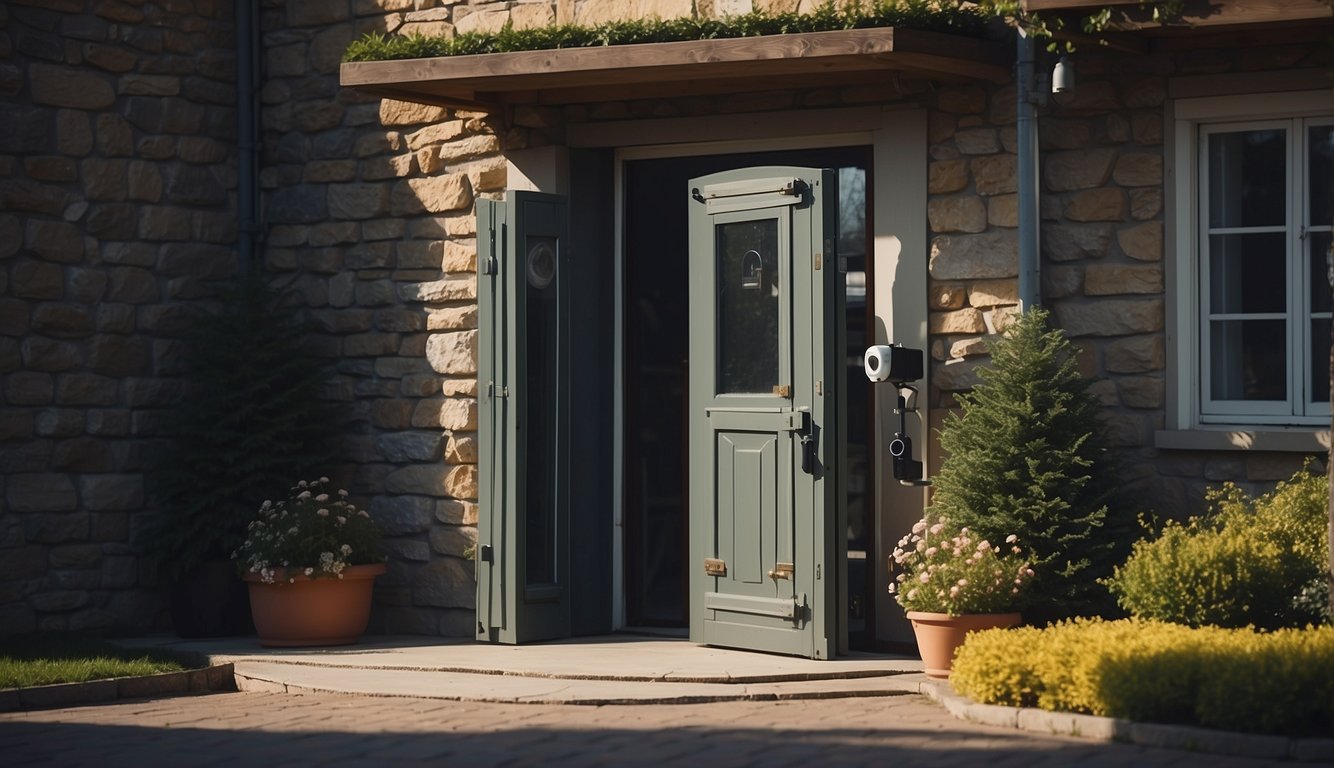
When it comes to home security post-disaster, self-defense and protection should be one of your top priorities. You need to ensure that you have the necessary tools and skills to protect yourself and your loved ones from any potential threats that may arise. Here are some key factors to consider:
Firearms and Non-Lethal Weapons
Having a firearm can be an effective way to protect yourself and your family in an emergency situation. However, owning a firearm comes with great responsibility. You need to ensure that you have the proper training and knowledge to use it safely and effectively. Additionally, you need to consider the legal implications of owning a firearm and ensure that you are following all applicable laws and regulations.
Non-lethal weapons, such as pepper spray or stun guns, can also be effective tools for self-defense. They are generally less lethal than firearms and can be used in situations where deadly force is not necessary. However, like firearms, you need to ensure that you have the proper training and knowledge to use them safely and effectively.
Training and Safety Measures
No matter what self-defense tool you choose, training and safety measures are essential. You need to ensure that you are properly trained in how to use your chosen tool and that you are practicing good safety habits. This includes keeping your weapon secure and out of reach of children, knowing how to properly store and maintain it, and ensuring that you are following all applicable safety guidelines.
Psychological Preparedness
In addition to physical tools and training, psychological preparedness is also important. You need to be mentally prepared for the possibility of violence and have a plan in place for how you will respond. This includes knowing when to use force and when to retreat, as well as being prepared to deal with the aftermath of a violent encounter.
In conclusion, self-defense and protection are essential components of any prepper’s home security plan post-disaster. Whether you choose to use a firearm or a non-lethal weapon, you need to ensure that you have the proper training and knowledge to use it safely and effectively. Additionally, you need to be psychologically prepared for the possibility of violence and have a plan in place for how you will respond.
Technical Skills and Knowledge
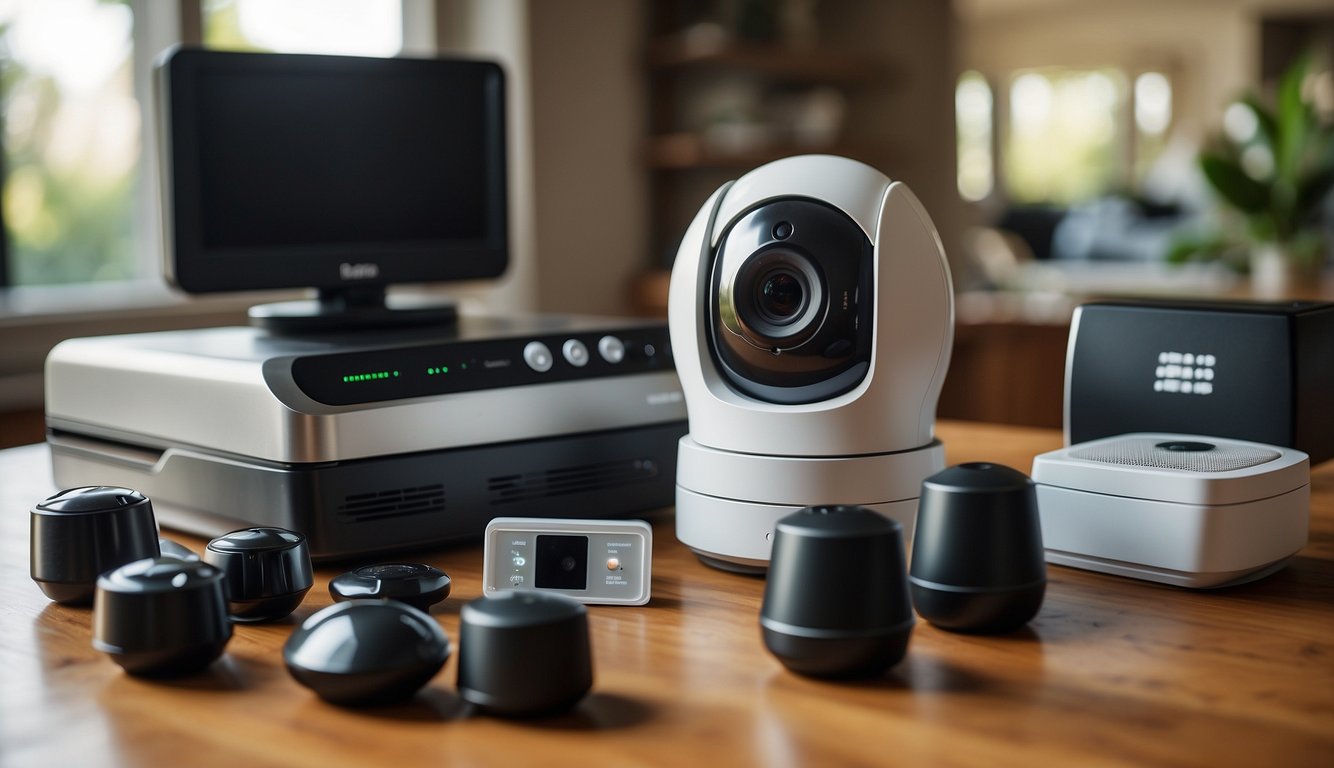
As a prepper, you need to have a range of technical skills and knowledge to ensure that you are prepared for any post-disaster situation. In this section, we will discuss some of the essential skills and knowledge that you should have to secure your home post-disaster.
Basic Repair and Maintenance Skills
Having basic repair and maintenance skills is crucial for any prepper. You should know how to repair and maintain your home security systems, including alarms, locks, and surveillance cameras. You should also know how to fix broken windows, doors, and fences.
There are several resources you can use to improve your repair and maintenance skills. You can take courses or read books on home repair and maintenance. Amazon, for example, has a wide selection of books on home repair and maintenance that you can purchase. You can also find free PDFs on the internet or borrow books from your local library.
Emergency Medical Training
In a post-disaster situation, emergency medical training can save lives. You should know how to perform basic first aid, including how to treat wounds, burns, and fractures. You should also know how to use a defibrillator and perform CPR.
There are several organizations that offer emergency medical training, including the American Red Cross and the National Safety Council. You can take courses online or in person to improve your emergency medical skills.
Navigating Legal and Ethical Considerations
As a prepper, you should be aware of the legal and ethical considerations surrounding home security post-disaster. For example, you should know the laws regarding the use of force to protect your home and property. You should also be aware of the ethical considerations surrounding the use of surveillance cameras and other security measures.
There are several resources you can use to improve your knowledge of legal and ethical considerations. You can take courses or read books on the topic. You can also consult with a lawyer or law enforcement officer to get advice on the best practices for securing your home post-disaster.
Building a Prepper Network
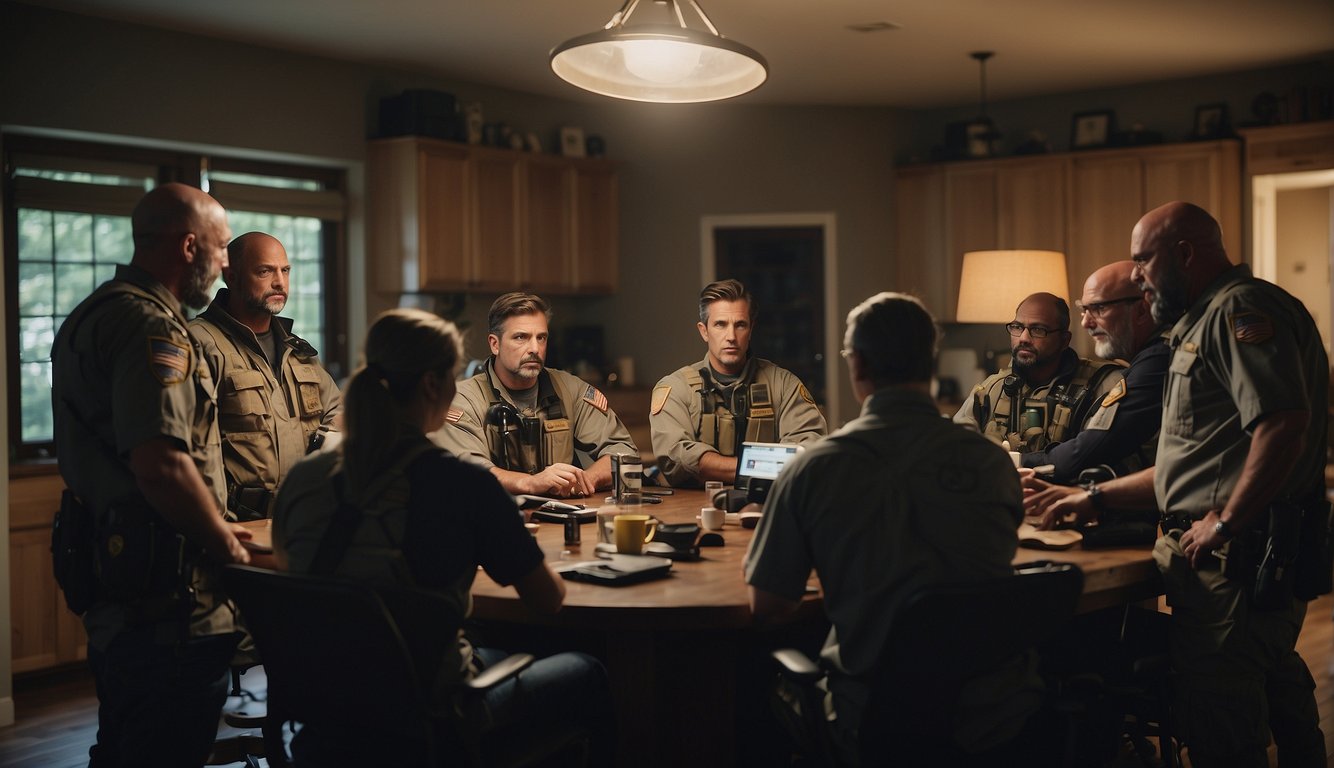
When it comes to post-disaster home security, building a prepper network can be a crucial step towards ensuring your safety and survival. Here are some ways to build a strong prepper network:
Leveraging Social Media and Online Communities
Social media and online communities can be a great way to connect with other preppers and build a network of like-minded individuals. Joining prepper groups on Facebook, Reddit, or other platforms can allow you to share information, resources, and ideas with others who are also interested in post-disaster home security. You can also use these platforms to find local prepper groups and events in your area.
Local Groups and Mutual Aid
Building a network of local preppers can be a great way to ensure that you have a support system in place in case of an emergency. Consider joining or starting a local prepper group, or participating in mutual aid networks that can help you share resources and skills with others in your community. By working together, you can pool your resources and knowledge to better protect your homes and families.
Collaborative Training and Exercises
Training and exercises can be a great way to build skills and knowledge within your prepper network. Consider organizing training sessions or exercises that can help you and your fellow preppers learn new skills, practice emergency procedures, and build teamwork. You can also use these exercises to identify areas where you may need additional resources or support, and work together to address any gaps in your preparedness plan.
By building a strong prepper network, you can ensure that you have the resources, skills, and support you need to protect your home and family in the event of a disaster. Whether you leverage social media, connect with local groups, or collaborate on training and exercises, building a prepper network is an essential step towards ensuring your safety and survival in a post-disaster world.
Staying Informed and Updated
As a prepper, staying informed and updated is crucial to your home security post-disaster. By keeping up-to-date with the latest news and alerts, continually learning and developing new skills, and adapting to changing threats, you can ensure that you are always prepared for whatever may come your way.
Monitoring News and Alerts
One of the best ways to stay informed and updated is to monitor news and alerts from reliable sources. This can include local news outlets, government websites, and emergency management agencies. By staying informed about local and regional events, you can quickly identify potential threats to your home security and take appropriate action.
Continual Learning and Skill Development
Another important aspect of staying informed and updated is to continually learn and develop new skills. This can include everything from first aid and survival skills to home security techniques and disaster preparedness. By regularly practicing and honing your skills, you can improve your ability to respond to emergencies and protect your home and family.
Adapting to Changing Threats
Finally, it is essential to adapt to changing threats as they arise. This can include everything from natural disasters like earthquakes and hurricanes to man-made threats like terrorism and civil unrest. By staying vigilant and adapting your home security measures as needed, you can ensure that you are always prepared for whatever may come your way.
In conclusion, staying informed and updated is crucial to your home security post-disaster. By monitoring news and alerts, continually learning and developing new skills, and adapting to changing threats, you can ensure that you are always prepared to protect your home and family.
Entertainment and Morale
Maintaining Mental Well-Being
In a post-disaster scenario, it’s important to prioritize your mental well-being. The stress and anxiety of the situation can take a toll on your mental health. To maintain your mental well-being, try to establish a daily routine, including time for self-care and relaxation. Meditation, yoga, and breathing exercises can help reduce stress and anxiety. Additionally, try to maintain a positive attitude and focus on the good things in your life.
Recreational Activities Post-Disaster
Recreational activities can help keep your mind off the disaster and provide some much-needed stress relief. Board games, card games, and puzzles are great options that don’t require electricity or the internet. If you have access to a backyard or outdoor space, consider setting up a small garden or playing outdoor games like frisbee or catch.
Community Engagement and Support
Maintaining a sense of community after a disaster is important for morale and mental well-being. Try to connect with your neighbors and offer support where possible. You can organize community events like potlucks or game nights to bring people together. Additionally, consider volunteering at a local shelter or community center to help those in need. Cell phones and social media can be useful tools for organizing community events and staying connected with others.
Remember, maintaining your mental well-being is just as important as physical security in a post-disaster scenario. Prioritize self-care and recreational activities to reduce stress and anxiety. Engage with your community and offer support where possible to maintain a sense of community and morale.

Leave a Reply